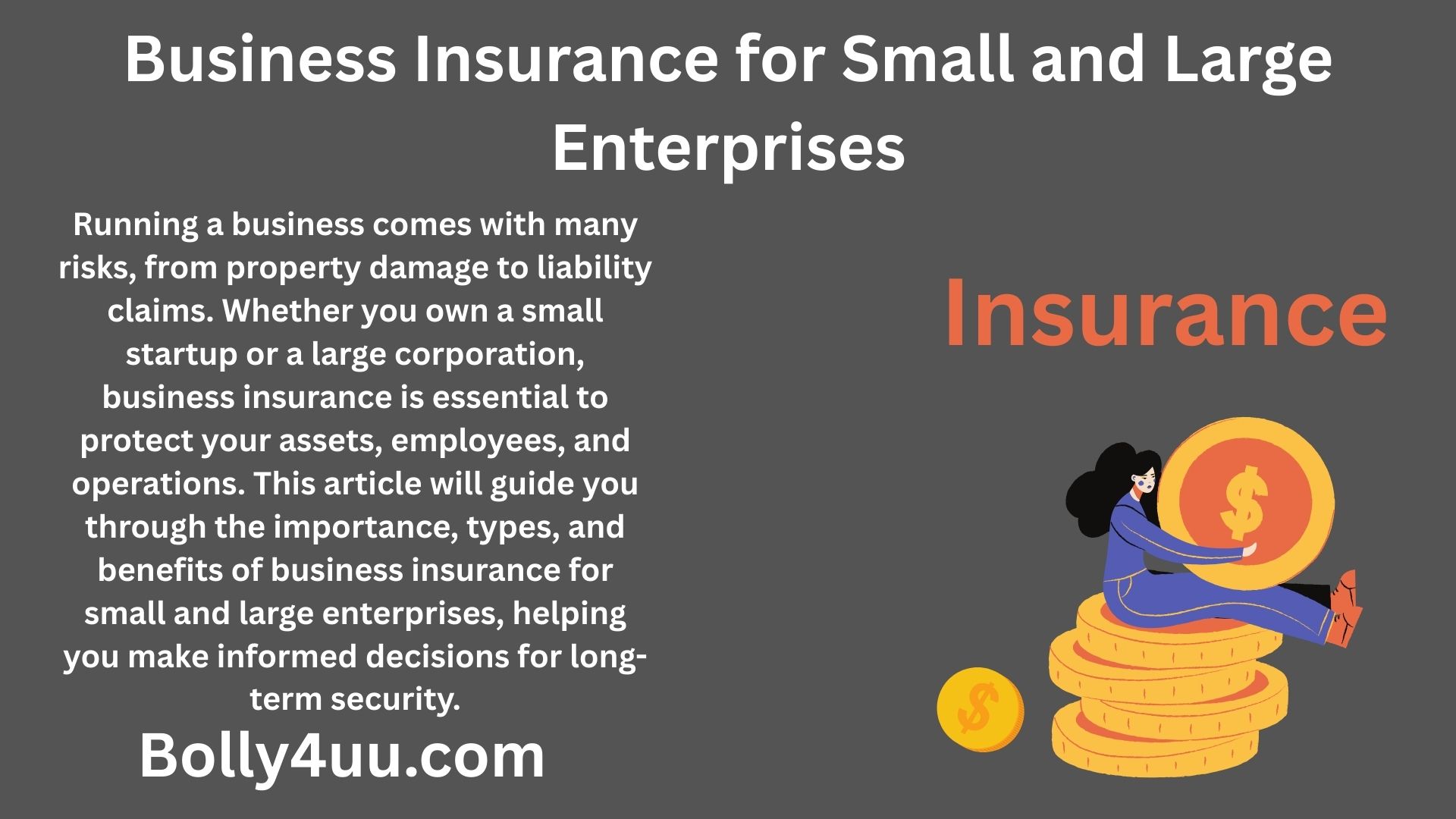Running a business comes with many risks, from property damage to liability claims. Whether you own a small startup or a large corporation, business insurance is essential to protect your assets, employees, and operations. This article will guide you through the importance, types, and benefits of business insurance for small and large enterprises, helping you make informed decisions for long-term security.
1. What Is Business Insurance?
Business insurance is a broad category of policies designed to protect companies from financial losses resulting from unexpected events. It covers risks such as property damage, legal liabilities, employee-related risks, and business interruptions.
2. Importance of Business Insurance
Having adequate insurance safeguards your business from:
- Financial loss due to accidents, lawsuits, or natural disasters
- Employee-related claims such as workers’ compensation
- Legal expenses and settlements
- Loss of income from operational disruptions
- Protecting your business’s reputation and client trust
3. Types of Business Insurance for Small Enterprises
Small businesses can choose from several insurance types, including:
- General Liability Insurance: Covers third-party injuries and property damage.
- Property Insurance: Protects business assets like buildings and equipment.
- Workers’ Compensation: Covers medical expenses and lost wages for injured employees.
- Professional Liability (Errors & Omissions): Protects against claims of negligence or mistakes.
- Business Interruption Insurance: Covers lost income if your business is temporarily closed.
4. Business Insurance Options for Large Enterprises
Larger companies often require more complex coverage, such as:
- Commercial Auto Insurance: For company vehicles.
- Directors and Officers (D&O) Insurance: Protects executives from legal claims.
- Cyber Liability Insurance: Covers data breaches and cyber attacks.
- Product Liability Insurance: Protects against claims from defective products.
- Umbrella Insurance: Provides additional liability coverage beyond standard policies.
5. How to Assess Your Business Insurance Needs
Evaluate your risks by considering:
- Industry-specific hazards
- Number of employees
- Value of physical assets
- Legal and regulatory requirements
- Contractual obligations with clients or partners
6. Benefits of Customized Business Insurance Plans
Tailored insurance solutions ensure you pay only for necessary coverage and adequately protect all aspects of your operations, helping avoid gaps or overlaps.
7. How to Choose the Right Business Insurance Provider
Consider factors like:
- Provider reputation and financial stability
- Policy flexibility and customization options
- Claims handling efficiency
- Cost vs. coverage balance
- Expert advice and customer support
8. Common Mistakes to Avoid When Purchasing Business Insurance
- Underestimating coverage needs
- Overlooking exclusions and limitations
- Ignoring policy renewal and review
- Not bundling policies for discounts
- Failing to communicate changes in business operations to your insurer
9. The Role of Risk Management Alongside Insurance
Insurance is only part of the solution. Implementing strong risk management practices reduces claims and insurance costs over time.
10. Final Thoughts: Secure Your Business Today
No matter your business size, investing in the right insurance policies protects your company’s financial health and longevity. Assess your risks, choose appropriate coverage, and partner with a reliable insurer to ensure peace of mind.
✅ Summary:
- Business insurance mitigates financial risks.
- Small and large businesses have unique insurance needs.
- Tailored policies and professional advice maximize protection.
- Regularly review and update your coverage.
